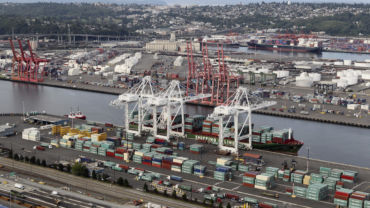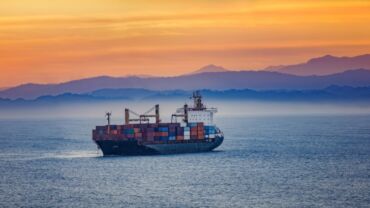During the pandemic, the tax & accounting industry saw trade audit activities slow tremendously, but that might soon be changing
Among the many disruptions for the tax & accounting industry over the last 14 months of the global pandemic, trade audits activities slowed tremendously. In fact, audits across industries slowed, and in some cases, ceased all together.
Trade audits performed by borders and countries were among the ones paused for months. According to the recent webinar, Preparing for Trade Compliance Audits Post-COVID, some of the reasons for this delay have included less trade transactions because of companies’ inability to export to certain countries because of border closure; businesses shuttered due to government mandates; and employees being sick. In addition, in some regions, many countries’ borders were prioritizing the importing and exporting of personal protective equipment (PPE) products.
As the world now emerges from the pandemic and things begin to return to normal, there is little doubt that audits will resume, most likely at an increased pace. As businesses also emerge from being shuttered or having to work remotely, one key consideration is reviewing how differently auditors have worked the last year and what needs to be done to ensure auditing firms are compliance ready.
Understanding sourcing changes
“Businesses not only have to be aware of changes as a result of the pandemic, but also those that were taking place before,” says Virginia Thompson, Senior Product Manager at Thomson Reuters ONESOURCE Global Trade. For example, “had there been changes to ports based on supply chain changes?” she asks.
Pre-pandemic, there may have been sourcing changes, and that could bring a host of questions for auditors. Were there import and export port changes, especially right before the shutdown? Did shipping volume change? Are there accurate records of the changes? Were the proper tariffs estimated or paid? Were those records stored and tracked accurately, and can accuracy be verified?
During the pandemic almost all businesses experienced a disruption to their supply chain (Indeed, some have noted this disruption will continue well past the next 12 months). Also, there were many changes to suppliers — many companies needed to find new suppliers when existing suppliers either went out of business or could no longer provide products due to shortages of resources. For companies that moved to remote working, was there a consensus on who would receive all records related to sourcing? Is the select individual or individuals working on secure networks? Where are the records stored? If there are paper records, where are they being stored? How will they be accessed?
Again, are their specific individuals designated to keep track and make sure the business is receiving all the required paperwork associated with new suppliers? If working with a new supplier, then most likely there is also a new port. And if the business haven’t work with the new port before, it must now understand what the port’s customs transactions are. What is the necessary paperwork filed and what records are needed to be in compliance? Do all records need to be digital?
“Most countries are transparent with what the audit is on,” explains Thompson. “Firms must do their homework and know what the various countries require.”
Value of self-audits
How a business manages the operations of its supply team is a key indicator of both the health of the business and its ability to manage a successful government audit. Managing any team in a remote environment — especially when it wasn’t planned — is difficult. Managers and leaders of supply teams faced these challenges while at the same time trying to successfully keep up with suppliers and port changes.
Managers who were able to be empathic while making sure processes for record-keeping and collection were streamlined, ensuring, for example, that regular meetings were set to keep track of all changes and how the changes would be integrated into whatever tracking systems were used.
During the pandemic almost all businesses experienced a disruption to their supply chain. Also, there were many changes to suppliers — many companies needed to find new suppliers when existing suppliers either went out of business or could no longer provide products due to shortages of resources.
Now, as things return to the normal that is now, supply teams must think about how they can proactively be ready for an audit. And the best way to do that is to conduct a self-audit.
As a part of a self-audit — as with a document and records review — is consideration to human resource changes. Unfortunately, most businesses during the pandemic were faced with layoffs as well employees leaving the company for personal and family reasons. Supply team managers must work with HR and IT to confirm that these individuals no longer have access to company-sensitive information, including global trade information. Continued access could make the company in violation of compliance.
As companies replace talent, having documentation and procedures in place to ensure such compliance can streamline processes. And that ensures accuracy in training and minimizes errors as new hires get up to speed quickly. This can also standardize processes, which then can be used as additional documentation in an audit.
Self-auditing remains a great tool — it exposes areas of potential risks and allows for businesses to make corrections before there is a government audit. The use of technology to manage the supply business isn’t new, but it has and will continue to be leveraged. Technology affords accuracy and the ability to share and store data across offices and systems. Trade technology continues to evolve, leveraging concepts like artificial intelligences (AI) and robotic process automation (RPA) to allow for better collaboration and tracking.
Whether it is next month or the next four months, government customs across the globe will resume audits. So, make sure your company has laid the groundwork to be ready, because if not, most likely it will not be if you will be audited, but when.







